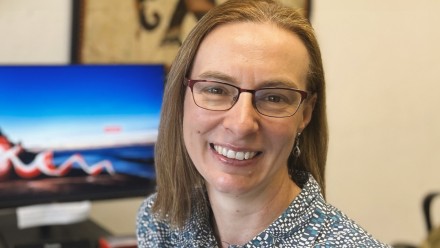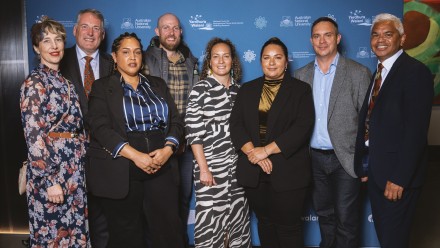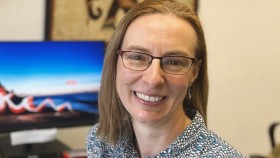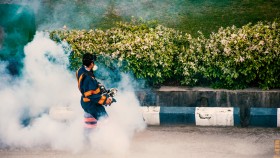Launching Yardhura Walani: Australia’s largest Aboriginal and Torres Strait Islander wellbeing research centre
Share
Ten years ago, the Aboriginal and Torres Strait Islander wellbeing research ‘team’ at The Australian National University (ANU) was made up of just one member. Today the group has evolved into a sixty-person team with the launch of Yardhura Walani — a strong powerful and healthy place.
Previously known as the National Centre for Aboriginal and Torres Strait Islander Wellbeing Research (NCATSIWR), Yardhura Walani is the largest Aboriginal and Torres Strait Islander wellbeing research team in Australia, and the largest employer of Aboriginal and Torres Strait Islander peoples at ANU.
Officially launched on 16 May, the event marked a significant milestone in a journey towards better health outcomes and wellbeing for Aboriginal and Torres Strait Islander communities across the nation.
The Centre focuses its work on the most significant health and wellbeing factors including culture, racism, tobacco, cancer, and chronic disease.
“Our data and research feature the voices of all sections of our communities, and we hear the truth of overcoming, of warriorship, of solidarity, skill, excellence, values, joy, and abundance of love, kinship and community. I know without doubt that our ways heal,” said Fiona Cornforth, Centre Head, in her heartfelt speech at the Centre launch.
Sam Pope, the Centre’s research manager, fondly recounted her initial interactions with the Centre and reflected on what the Centre means for communities.
“The work at the Centre is about empowering communities and ensuring that the research that we conduct is not just relevant but is respectful of the values, is meaningful and aligns with community needs. The Centre is a gateway, a portal for opportunities for Mob.”
The launch of Yardhura Walani celebrates the impact the Centre has had on improving health and wellbeing of Aboriginal and Torres Strait Islander peoples, and supports the continued impactful, profound and meaningful research the Centre will undertake in the future.
As Ms Cornforth noted, “We will continue to pursue justice and exercise our rights. We hold a responsibility. While many research schools accept a lag between research and response, we don’t have that luxury.”
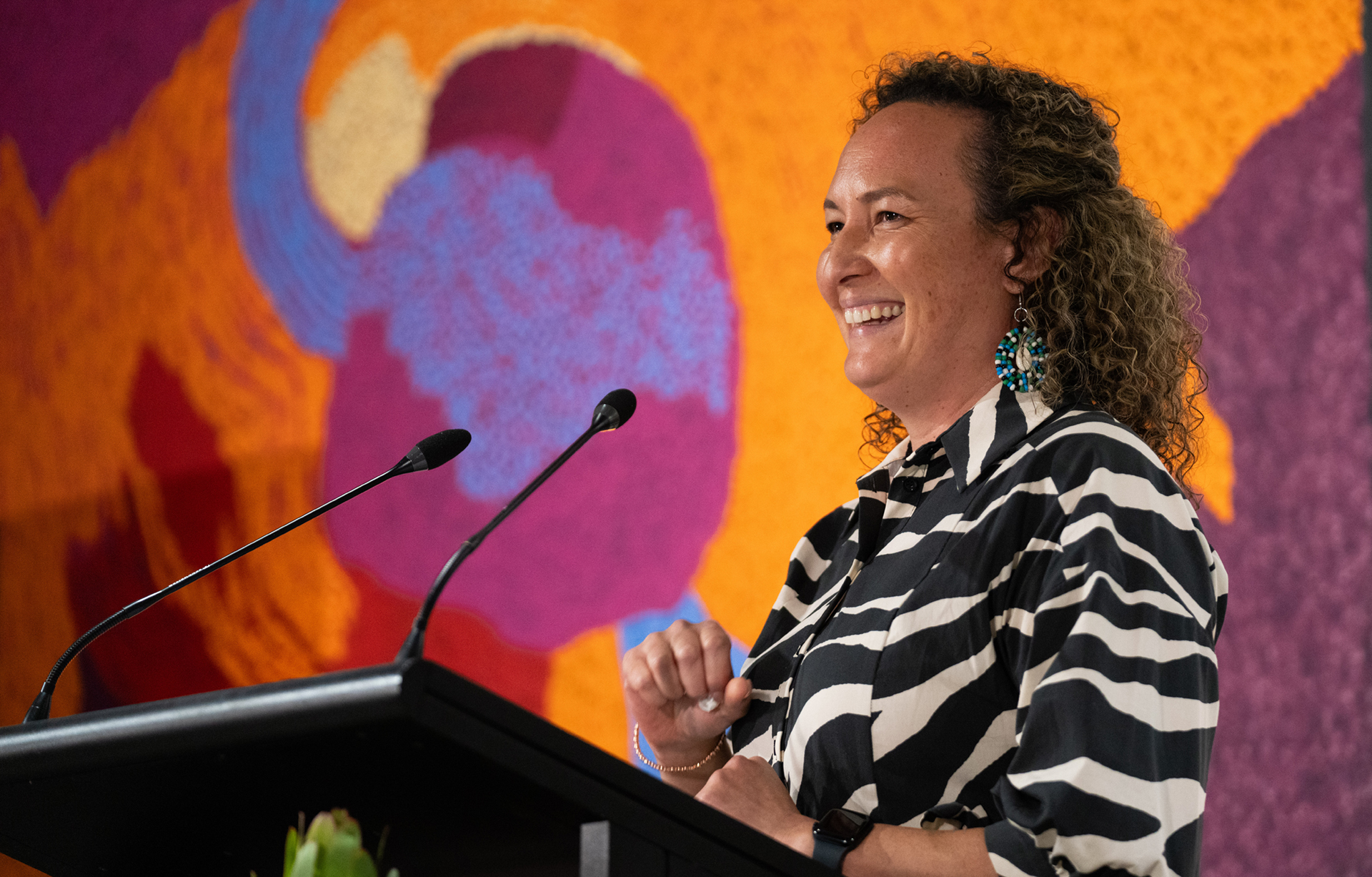
Fiona Cornforth giving a speech at the Yardhura Walani Launch. Image: Tracey Nearmy/ANU
More about Yardhura Walani
The Centre partners with peak body organisations and generates research that briefs leaders as well as health ministers and government on policy considerations. A number of programs are run through the Centre that equip health workers and data warriors for responding to community’s wellbeing needs, including:
- Mayi Kuwayu Study: the largest national study of Aboriginal and Torres Strait Islander culture, health and wellbeing with over 13,000 Aboriginal and Torres Strait Islander participants from across Australia.
- Kulay Kalingka: will provide Aboriginal and Torres Strait Islander led and governed national-level data to understand Aboriginal and Torres Strait Islander people’s beliefs about cancer, and experiences with cancer care and treatment.
- Cervical cancer elimination: a body of research centres on achieving control and elimination of cervical cancer for Aboriginal and Torres Strait Islander women and people with a cervix through vaccination against Human Papillomavirus, screening and treatment.
- Enhancing chronic disease care: enhancing chronic disease screening and management for Aboriginal and Torres Strait Islander peoples and better understanding current primary health care services and follow-up.
- Tobacco free: working with Aboriginal and Torres Strait Islander peoples, communities and organisations to better understand, inform and evaluate smoke and nicotine free programs and policies, with the ultimate goal of supporting all Aboriginal and Torres Strait Islander communities to be tobacco free.
Please visit their webpage: yardhurawalani.com.au to find out more, and follow their X (formerly Twitter), Facebook, and LinkedIn pages to keep up to date with their latest research news and events.







